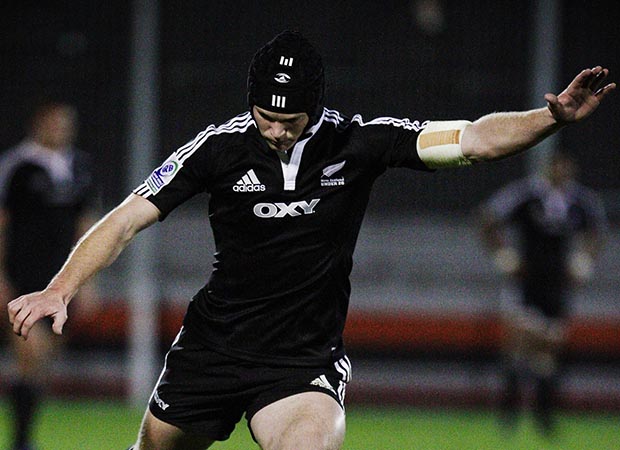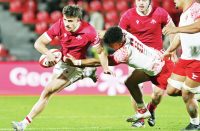 Exactly five years ago this coming Wednesday, in a football stadium where a local boy called Messi used to play, New Zealand beat South Africa in the semi-finals of the Junior World Cup.
Exactly five years ago this coming Wednesday, in a football stadium where a local boy called Messi used to play, New Zealand beat South Africa in the semi-finals of the Junior World Cup.
Tyler Bleyendaal captained the Baby Blacks from fly-half and a back-row forward called Christiaan Johann Stander led the stripling Springboks. The rival skippers that day in Rosario are now serving their time for an international career in a country where neither has any known ancestral link.
Each made the long haul from central Argentina back home after the 2010 tournament and have since made a longer haul, halfway across the globe towards the western edge of Europe. Bleyendaal and Stander are qualifying for Ireland via Munster.
They are called ‘project’ players, imports inevitably from the Commonwealth signed on three-year contracts designed to make them eligible for their new country under the residential rule. Stander, better known as CJ, does so in October, marginally too late for this World Cup but in ample time for the next one.
Bleyendaal, at 25 the same age as Stander, would have qualified at the same time had Munster not been forced to wait two years to complete his transfer from one end of the rugby world to the other.
Having gone a long way from his native Canterbury to escape Dan Carter’s shadow, the Crusader from Christchurch made his Munster debut only last month, for their second team, following a neck operation.
Somehow, it doesn’t seem right, not that either party is breaking any law.
“Everybody else is doing it,” they will tell you. “So if we stand back and do nothing, we put ourselves at a disadvantage.”
In Wales, where they call them ‘time-servers’, a pair of South African locks awaiting Welsh conversion as fully-fledged Ospreys have also been hit by surgery. Rynier Bernardo from Pretoria dislocated a kneecap in January and De Kock Steenkamp, from the Stormers, sat the season out with a torn Achilles.
That doesn’t sound right, either but then everyone else is doing it. Being good enough for a new country at the end of the 36-month qualification process is almost as hazardous as the occupation itself.
A third time-serving South African lock, George Earle, has done his three years at the Scarlets but without convincing the Welsh management that he is any better, or even as good as, those home-grown locks ahead of him in the World Cup training squad.
Having signed on for at least one more season, Earle is fully qualified should Wales need him. Some of Ireland’s ‘project’ signings never got that far because, for one reason or another, they were unable to hack it in the Pro12. Leinster have had a few, like the Sharks lock Steven Sykes, whose arrival in March 2011 came with a glowing reference from Joe Schmidt, then the province’s head coach.
“At 26,” said Schmidt. “We believe his best years are still to come.”
Sykes played four matches for Leinster. Clint Newland, a New Zealand Maori prop, managed 12 and another Kiwi prop, Peter Borlase, made seven appearances for Munster followed by one at Connacht before he, too, went home, mission unfulfilled.
Scotland have either been shrewder in their project signings or just plain lucky.
Josh Strauss, immense all season long in Glasgow Warriors’ rise as Pro12 champions, qualifies in time for the World Cup. He has, according to Scotland’s Kiwi head coach, Vern Cotter, a “massive desire to play for Scotland”.
Of course he has. Do not be surprised if Strauss’ arrival in the Scottish back -ow goes cap in hand with the captaincy. He and the already-qualified Edinburgh prop WP Nel are the tip of a Southern Hemisphere iceberg.
Three more of Edinburgh’s overseas contingent are in the process of converting. Cornell du Preez, a 24-year-old blindside-cum-No. 8 from Port Elizabeth, is eligible next year. Namibian lock Anton Bresler and ex-Highlanders fly-half Phil Burleigh qualify in 2017.
There’s an awful lot on the nationality issue that doesn’t sound right.
Whether Bleyendaal from Christchurch will be the new Jonny Sexton or Bernardo from Pretoria the new Alun-Wyn Jones is one question. There is a more relevant one.
How much longer will it take World Rugby to wake up to the fact that the soft three-year residential rule is now being milked for all it’s worth?
























Pingback: วิเคราะห์บอล
Pingback: บับเบิ้ล